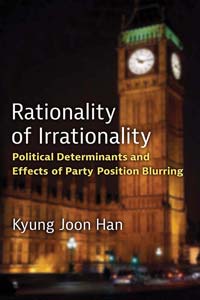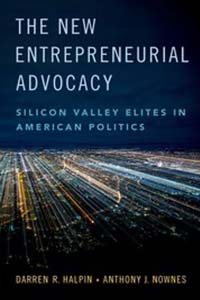Recent Faculty Books
Faculty Books
Recent Faculty Books
Pirate Lands
by Ursula Daxecker and Brandon Prins

Maritime piracy’s improbable re-emergence following the end of the Cold War was surprising as the image of pirates evokes masted galleons and cutlasses. Yet, the number of incidents and their intensity skyrocketed in the 1990s and 2000s off of the coasts of Indonesia, Malaysia, the Philippines, India, Bangladesh, Nigeria, and Somalia.
As Ursula Daxecker and Brandon Prins demonstrate in Pirate Lands, Maritime piracy-like civil war, terrorism, and organized crime-is a problem of weak states. Surprisingly, though, pirates do not operate in the least governed areas of weak states. Daxecker and Prins address this puzzle by explaining why some coastal communities experience more pirate attacks in their vicinity than others. They find that pirates do well in places where elites and law enforcement can be bribed, but they also need access to functioning roads, ports, and markets. Using statistical analyses of cross-national and sub-national data on pirate attacks in Indonesia, Nigeria, and Somalia, Daxecker and Prins detail how governance at the state and local level explain the location of maritime piracy. Additionally, they employ geo-spatial tools to rigorously measure how local political capacity and infrastructure affect maritime piracy.
Drawing upon interviews with former pirates, community members, and maritime security experts, Pirate Lands offers the first comprehensive, social-scientific account of a phenomenon whose re-appearance after centuries of remission took almost everyone by surprise.
Rationality of Irrationality
by Kyung Joon Han

Citizens in democracies complain that political parties’ positions on major issues are too ambiguous for them to confidently understand. Why is party position ambiguity so common? Are party positions ambiguous because political parties fail in forming clear policies or because they deliberately blur their positions? Rationality of Irrationality argues that political parties are motivated to strategically blur their position on an issue when they struggle with a certain disadvantage in the issue. Specifically, political parties present an ambiguous position when their own supporters are divided in their stances on the issue. A political party also blurs position stances when voters do not acknowledge that the party has the ability and integrity to solve problems related to the issue. Political parties blur their position in these cases because ambiguous party positions divert voters’ attention from the issue. Voters support a political party whose policy positions on major issues are close to their own stances. However, voters cannot confidently and exactly estimate party positions on an issue when they are only ambiguous.
Hijacking the Agenda
by Christopher Witko, Jana Morgan, Nathan J. Kelly, Peter K. Enns

Why are the economic concerns of lower- and middle-class Americans so often ignored by Congress, while the economic goals of the wealthiest are prioritized, often resulting in policies promoting their interests? In Hijacking the Agenda, political scientists Christopher Witko, Jana Morgan, Nathan J. Kelly, and Peter K. Enns examine why Congress privileges the concerns of businesses and the wealthy over those of average Americans. They go beyond demonstrating this bias to document how and why economic policy is skewed in favor of the rich.
The authors analyze over 20 years of floor speeches by thousands of members of Congress to examine how campaign contributions and independent expenditures on behalf of candidates help set the national economic agenda. They find that legislators receiving more support from business and other wealthy interests were more likely to discuss the deficit and other upper-class priorities, while those receiving more assistance from unions were more likely to discuss issues important to the lower and middle class, such as economic inequality and wages. This attention imbalance matters because when members of Congress talk about certain issues, their speech is often followed by legislative action. While unions use their resources to push back against wealthy interests, spending by the wealthy dwarfs that of unions, often giving the upper class the upper hand.
The New Entrepreneurial Advocacy: Silicon Valley Elites in American Politics
by Darren R. Halpin and Anthony J. Nownes

The role of business in American politics has provoked much controversy and attention over recent years. One need look no further than the Koch brothers or the Trump administration to get an idea of the extent to which the interests of private business wield influence over the political system. Contemporary evidence of the clear and growing disparities in wealth between ordinary citizens and business elites has drawn new attention to this topic. Recently, the canon on the activities of business elites in politics has also grown as we have learned a great deal about how business firms and their ultra-wealthy leaders and investors seek to exert political influence.
This book looks at one form of business elite activity that has thus far received little attention, despite the high-profile political efforts of billionaire businesspeople including Bill Gates, Elon Musk, and Mark Zuckerberg: a phenomenon that Darren R. Halpin and Anthony J. Nownes call new entrepreneurial advocacy. This “entrepreneurial advocacy” is a mode of political engagement in which wealthy entrepreneurs (often from Silicon Valley) use their vast resources to form new organizations that advocate for their vision of the social good, which may or may not be directly linked to their private or business interests.
While previous studies focus on a cross section of either the wealthiest Americans or the largest firms in the United States, this book takes a deep-dive into the political activities of a single, yet pivotal, cohort–the founders and CEOs of Silicon Valley firms. Specifically, the authors trace the development of new entrepreneurial advocacy to understand its extent, its breadth, and whose interests they represent, who supports them financially, and why business elites choose to create new organizations to engage in advocacy rather than do so under the umbrellas of their companies. Crucially, the authors also look at the impact of these organizations and what their activity means for American democracy. Leveraging a vast range of unique datasets, from political donations and lobbying to philanthropic giving and social media commentary, this book examines the role of this important set of elites in contemporary American political life.